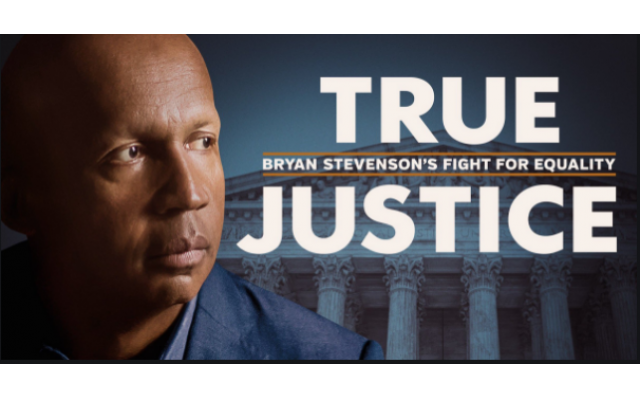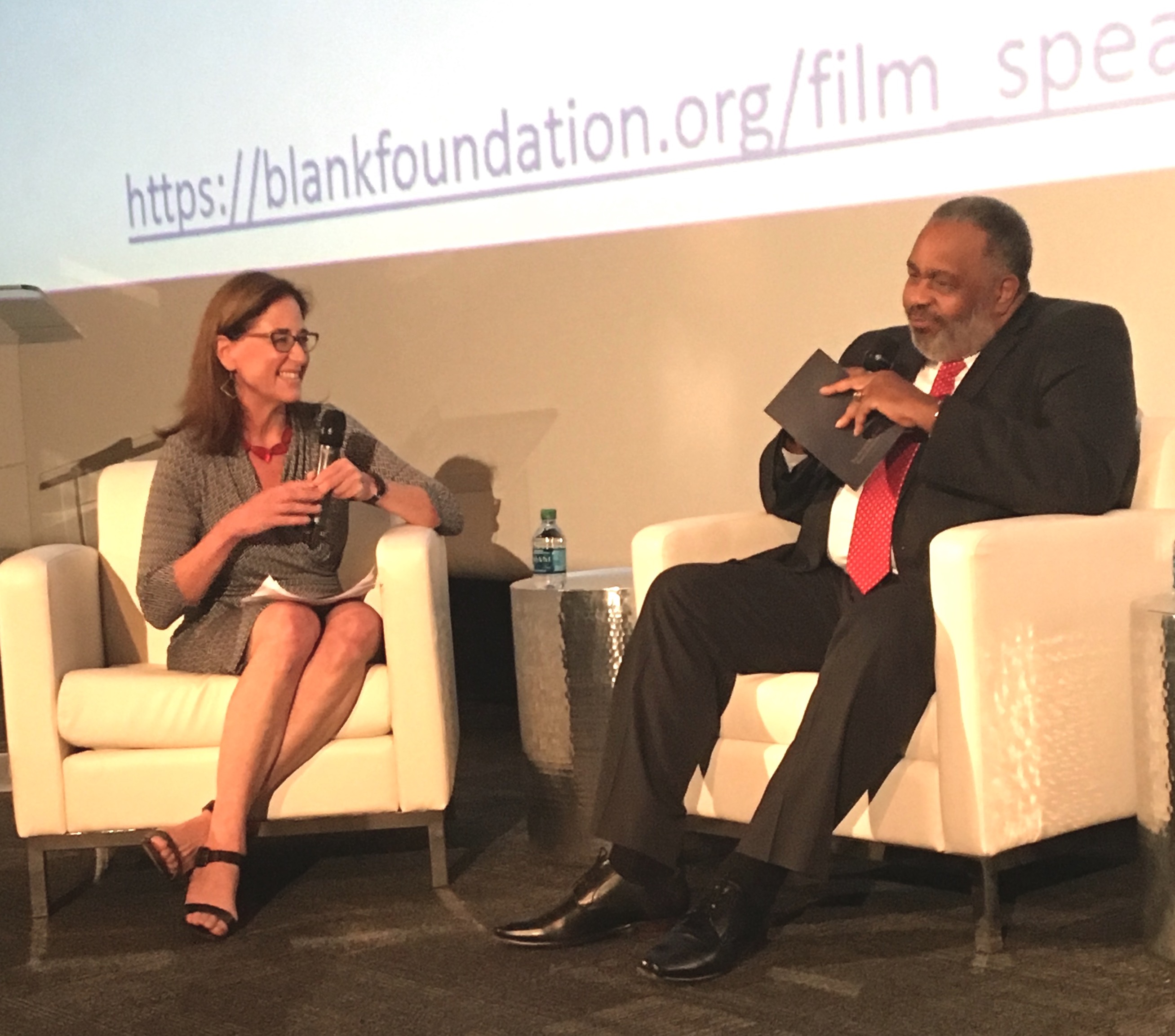Blank Foundation Promotes HBO Justice Documentary
A new HBO documentary, “True Justice: Bryan Stevenson’s Fight for Equality,” was screened last month by The Arthur Blank Family Foundation for a group of Atlanta leaders.

For 30 years, Anthony Hinton, who is black, sat on Alabama’s death row, accused of killing a white restaurant manager, a crime he said he didn’t commit. The Equal Justice Initiative, a nonprofit law firm in Montgomery, worked on his case for 16 years before it persuaded the U.S. Supreme Court to grant him a new trial.
In 2015, he walked out of prison a free man, yet another win for a law firm that since 1989 has achieved major justice reforms and gained either reduced sentences or outright release for more than 140 condemned prisoners on death row, many of them black.
The work of the firm and the lawyer who founded it, Bryan Stevenson, are the subject of a powerful, new HBO documentary, “True Justice: Bryan Stevenson’s Fight for Equality,” which was screened last month by The Arthur Blank Family Foundation for an invited group of Atlanta community leaders.
In addition to the recent showing, the Blank Foundation is funding a teaching guide and a re-edited version of the documentary, which is being made available, free, to schools and other organizations. Starting in December the documentary can be viewed on the HBO website at no charge. A feature film “Just Mercy,” produced by Warner Bros. Pictures about Stevenson, is also expected to be released in December.
Eric Schwartz, a member of The Temple in Atlanta, announced at the Blank Foundation event that the Reform synagogue would be among those scheduling the documentary for a public showing and discussion later this year.
During an interview after the screening, Hinton told Jill Savitt, CEO of the National Center for Civil and Human Rights, that the large number of black prisoners is part of America’s long history of racial discrimination.

“We must call it like it is,” he said. “Mass incarceration is a new form of slavery. You have no rights. I went to prison simply because of the color of my skin. I went to prison because I was born poor and black.”
The NAACP estimates that African Americans are incarcerated at more than five times the rate of whites and that black women are imprisoned twice as often as white women. About one-third, or 34 percent of all the prisoners in American jails are African American, although blacks make up only about one-eighth or 12 percent of the U.S. population, the NAACP reports.
For Stevenson and many civil rights leaders, those figures are the result, in part, of a long history of slavery, lynching and racial discrimination by lawmakers, the courts and the criminal justice system.
He didn’t attend the Blank event, but in the film, Stevenson summarized his concern.
“I think there’s something better waiting for us in this country than another century of conflict and tension and burden because we won’t face the legacy of our past. I think it’s important that we understand all the brutal, all the ugly details. Because those are the things that actually give rise to what might allow us to one day claim something with a new vision.”
“True Justice,” the HBO documentary that is narrated largely through the words of Stevenson, is an indictment of how America has shaped and administered its laws, not just for adults, but for children as well. His work resulted in a ban by the U.S. Supreme Court in 2010 on sentences of life without parole for children convicted of crimes other than murder.
Last year, his Equal Justice Initiative represented scores of people who were condemned to die in prison for crimes they committed when they were children.
In one case they represented a woman who was only 14 when she was sentenced to life in prison. They won a reduced sentence for the woman, but only after she had spent 42 years in prison.
For Hinton, the years of freedom after so many years of false imprisonment have been bittersweet. His book about those years and the fight to win his release was chosen by the Oprah Winfrey Book Club and became a New York Times best-seller. In May of this year he was a commencement speaker at St. Bonaventure University in New York, where he was awarded an honorary doctorate degree.
He credits his survival during his long years of solitary confinement to the unconditional love and support of his mother, who died three years before he was released.
“What got me through,” he told the audience at the Blank Foundation screening, “was my mom always said, don’t worry. There will always be people who hate you because of the color of your skin. Those are the people I want you to pray for and I want you to love them more.”



comments